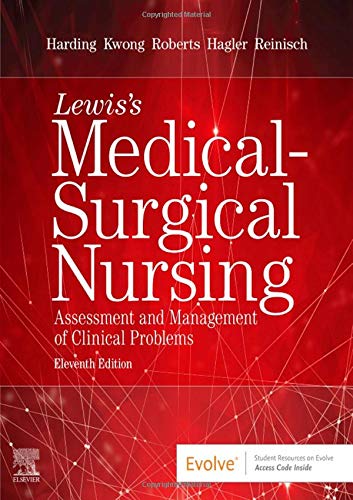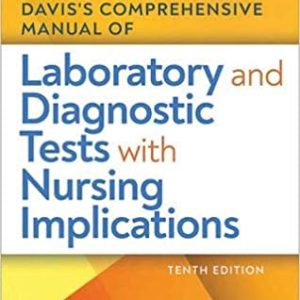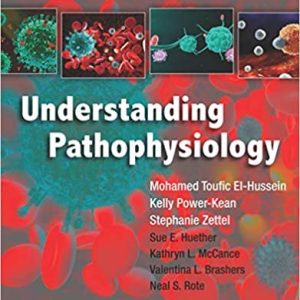Lewis’s Medical-Surgical Nursing: Assessment and Management of Clinical Problems 11th Edition
Publisher : Mosby; 11th edition (October 10, 2019)
Language : English
ISBN-10 : 0323551491
ISBN-13 : 978-0323551496
Format: ORIGINAL PDF
$13.99
Lewis's Medical-Surgical Nursing: Assessment and Management of Clinical Problems 11th Edition by Mariann M. Harding PhD RN CNE FAADN (Author), Jeffrey Kwong DNP MPH RN ANP-BC FAAN FAANP (Author), Dottie Roberts RN EdD MSN MACI OCNS-C CMSRN CNE (Author), Debra Hagler PhD RN ACNS-BC CNE CHSE ANEF FAAN (Author), Courtney Reinisch RN DNP FNP-BC (Author)
This revised text includes a more conversational writing style, an increased focus on nursing concepts and clinical trends, strong evidence-based content, and an essential pathophysiology review. Content covers all aspects of nursing care including health promotion, acute intervention, and ambulatory care. Helpful boxes and tables make it easy for you to find essential information, and a building-block approach makes even the most complex concepts simple to grasp. Key topics such as interprofessional care, delegation, safety, and prioritization are integrated throughout. Additionally, extensive drug therapy information and diagnostic studies tables give you a full picture of care. Best of all ― a complete collection of learning and study resources helps you learn more effectively and offers valuable, real-world preparation for clinical practice.
Content written and reviewed by leading experts in the field ensures that information is comprehensive, current, and clinically accurate.
Interprofessional Care tables and sections in all management chapters emphasize the importance of total patient care in today's health care settings and outline the role of each provider in managing disorders.
Bridge to NCLEX Examination review questions at the end of each chapter reinforce key content while helping you to prepare for the NCLEX examination with both standard and alternate item format questions.
Check Your Practice boxes challenge you to think critically and interact with patient data.
Informatics in Practice boxes discuss how technology is used by nurses and patients in healthcare settings.
Evidence-based practice boxes help you understand how to apply the latest research to real-life patient care.
Safety Alerts throughout the book highlight patient safety issues and focus on the latest National Patient Safety Goals.
UNIQUE! Nursing management is presented in a consistent and comprehensive format, addressing the unique approaches to nursing care.
Case studies throughout text emphasize prioritization, delegation, and concept mapping to help you learn to prioritize and delegate patient care.
Separate chapter on Genetics focuses on practical application to nursing care of patients.
Genetics in Clinical Practice boxes cover key topics such as genetic testing, Alzheimer's disease, sickle cell disease, and genetics-related ethics issues.
Genetic Risk alerts and Genetic Link headings highlight specific genetic issues related to body system assessments and disorders.
Ethical/Legal Dilemmas boxes promote critical thinking for timely and sensitive ethical and legal issues.
Pathophysiology Map flow charts make it easier for you to visualize and understand changes occurring in major diseases.
Focused Assessment tables reflect a realistic "assessment on the run" approach and offer brief checklists for evaluating the status of previously identified health problems and monitoring for signs of new problems.
Extensive drug therapy content includes Drug Therapy tables and concise Drug Alerts highlighting important safety considerations for key drugs.
Promoting Population Health tables summarize government health care goals as they relate to specific disorders and identify important strategies for the prevention and early detection of diseases.
Nutritional Therapy tables summarize nutritional interventions and strategies for promoting healthy lifestyles in patients with various conditions.
Promoting Health Equity boxes and a dedicated chapter on health disparities and culturally competent care highlight risk factors and important issues related to the nursing care of various ethnic groups.
Complementary and Alternative Therapies boxes summarize what you need to know about the clinical uses, effects, and nursing implications of herbal remedies and complementary and alternative treatment options.
Nursing interventions and nursing diagnoses are listed in order of priority.
Nursing Management boxes highlight the nurse’s role in working with members of the interprofessional team and also cover specific topics and skills related to delegation.
Assessment Abnormalities tables alert the nurse to frequently encountered abnormalities and their possible etiologies.
Core clinical content focuses on highlighting and incorporating QSEN competencies.
Emergency Management tables outline the treatment of health problems most likely to create medical emergencies.
Learning Outcomes and Key Terms help you identify the key content for that chapter.
Health History tables present key questions to ask patients related to a specific disease or disorder.
Patient and Caregiver teaching tables provide critical information to help you educate others who will be helping to care for the patient.
Gerontology and chronic illness included throughout the text under Gerontologic Considerations headings and in Gerontologic Assessment tables.
Nursing Assessment tables summarize the key subjective and objective data related to common diseases.
Gender Differences boxes discuss how women and men are affected differently by conditions such as pain and hypertension.
Diagnostic Studies tables provide details of commonly used lab tests that help assess various body systems.
Over 60 nursing care plans clearly shows the linkages among NIC, NOC, and nursing diagnoses, and applies them to nursing practice.
Over 800 full-color illustrations and photographs clearly demonstrate disease processes and related anatomy and physiology.
NEW! Conversational, reader-friendly writing style makes it easier to understand nursing concepts.
NEW use of nursing diagnosis language (ICNP) smoothes your transition into practice, as the International Classification for Nursing Practice is a common language shared with many electronic health record documentation systems.
NEW! Increased focus on concepts throughout the text includes a new Concepts Table of Contents that lists the most common exemplars with page number references, a new Problems Related to Comfort and Coping section, and the most relevant concepts listed at the start of each chapter.
NEW! Additional body map images are added throughout text.
Showing 661–672 of 701 resultsSorted by latest
-
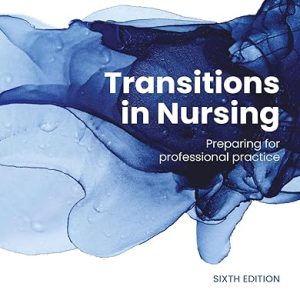
Transitions in Nursing Preparing for Professional Practice 6th edition
$15.99 Add to basket -
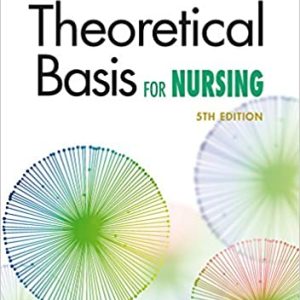
Theoretical Basis for Nursing 5th Edition
$9.99 Add to basket -
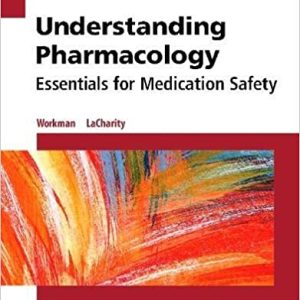
Understanding Pharmacology: Essentials for Medication Safety 2nd Edition
$7.99 Add to basket -
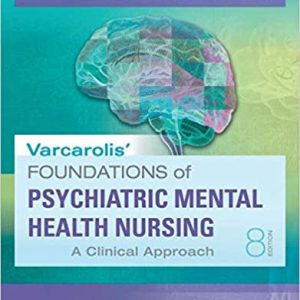
Varcarolis’ Foundations of Psychiatric Mental Health Nursing: A Clinical Approach 8th Edition
$7.99 Add to basket -

Varcarolis’s Canadian Psychiatric Mental Health Nursing, Canadian Edition, 2e
$9.99 Add to basket -
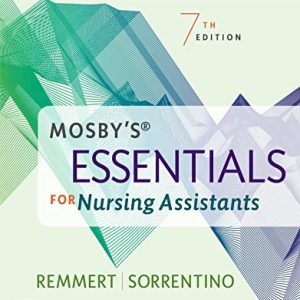
Workbook and Competency Evaluation Review for Mosby’s Essentials for Nursing Assistants
$11.99 Add to basket -
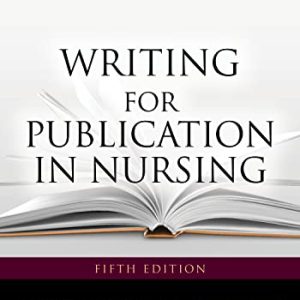
Writing for Publication in Nursing 5th Edition
$7.99 Add to basket -

Yatdjuligin : Aboriginal & Torres Strait Islander Nursing and Midwifery Care 2nd Edition
$13.99 Add to basket -

Pathologies maternelles et grossesse Tapa blandaPathologies maternelles et grossesse
$12.99 Add to basket -
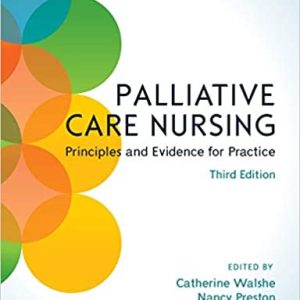
Palliative Care Nursing, 3rd Edition
$15.99 Add to basket -
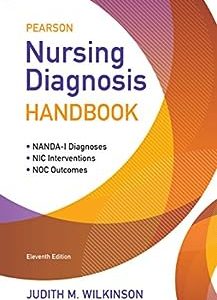
Pearson Nursing Diagnosis Handbook, 11th Edition – Eleventh ed
$12.99 Add to basket

